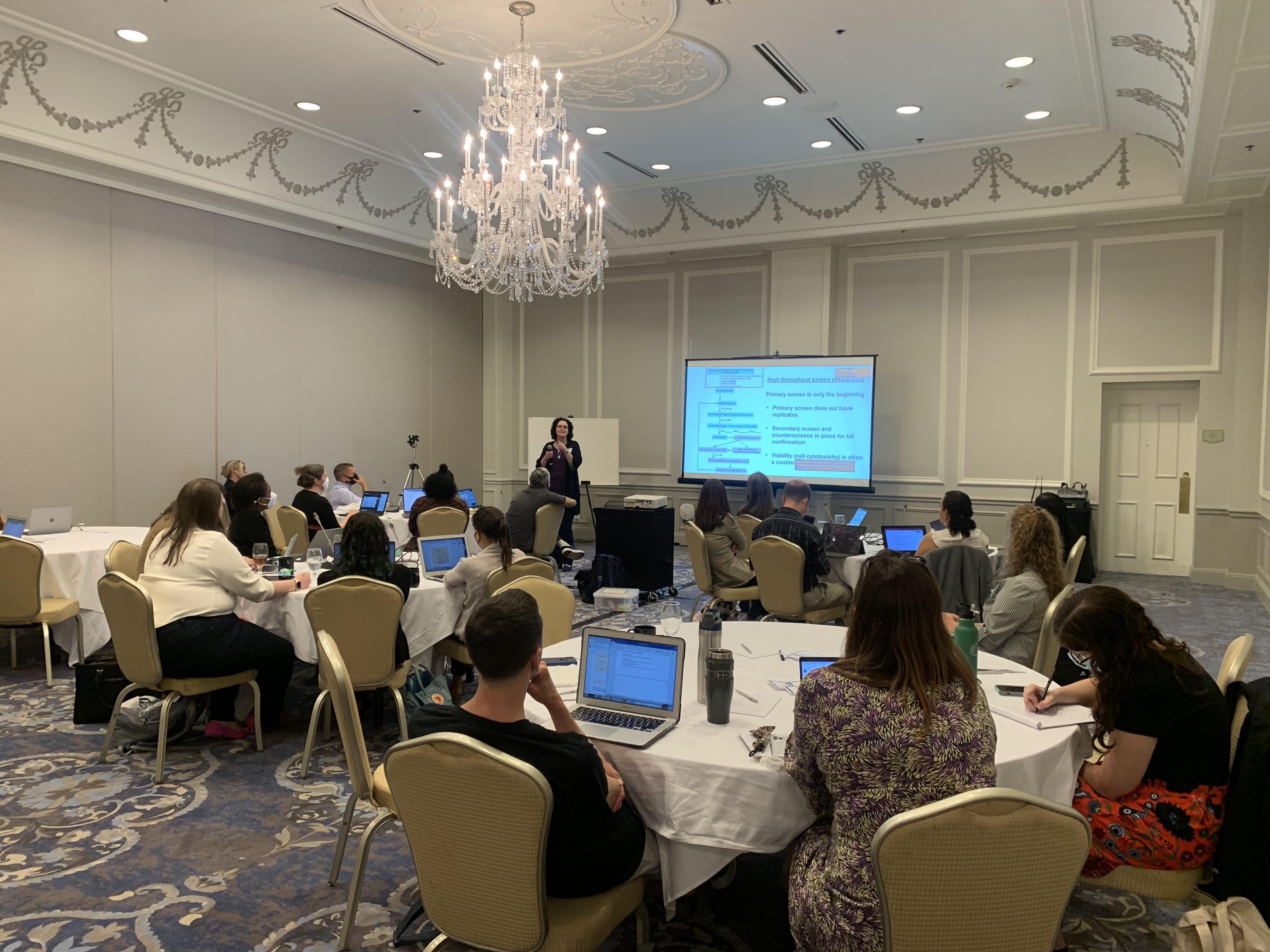HITS (High-throughput Discovery Science & Inquiry-based Case Studies for Today’s Students)

High-throughput approaches in biology have been transformative in the discovery of novel genes, drugs, and regulatory networks; these approaches have become an increasingly essential tool for researchers working in the biological sciences. However the effective design, implementation, and analysis of high-throughput research requires fundamental quantitative skills that are not often integrated in undergraduate biology education. In 2017, HITS (High-throughput Discovery Science & Inquiry-based Case Studies for Today’s Students) was awarded funding from NSF’s RCN-UBE program to improve student quantitative skills and participation in high-throughput discovery.
Over the past five years, researchers and teaching fellows in the network have worked together to create novel case studies that demystified high-throughput approaches and promoted discovery science, while reinforcing cornerstone STEM concepts and quantitative skills in the college classroom. The project has:
-
provided workshops, a virtual community, and online resources to foster high-throughput research and its integration;
-
connected researchers and educators to design and assess quantitative biology case studies based on high-throughput discovery research;
-
and created a diverse consortium of institutions committed to implementing these quantitative educational tools in biology courses and curricula across the country and world.
A wonderful BioQUEST/QUBES partner and repeat presenter at BIOME, HITS has been an incredible resource for educators who want to provide active, applied, real-world learning experiences for students.

(pictured: the 2022 HITS workshop, held May 23-25 in Chapel Hill, North Carolina)
What do you see as the most significant accomplishments of HITS? What are you most proud of?
The HITS Community is rich in experiences and creative ideas; one of the most significant accomplishments was the connections made with a common goal: to design novel and adaptable case studies exploring the many applications of high-throughput discovery science. It was tremendously rewarding to learn about the accomplishments of the members and how we all learned from each other. The project has also had a sizable and significant impact on student learning; as a result of HITS, thousands of students have gained experience with high-throughput approaches and case studies. Thirty-eight unique institutions and 50 Case Fellows have participated, with 10 published cases and at least 10 more in development.
What is it about the “cases approach” that opens the doors to high-throughput science?
Case studies challenge learners by immediately immersing them in a scenario that emphasizes the application of high-throughput approaches. Learners work individually or in small groups to address the questions through additional research, calculations, and critical thinking.
Case studies also allow students to consider technologies, conditions, and scenarios that are critical in their development as scholars yet which are difficult to simulate. The flexibility of multi-stage case studies is particularly appealing for high-throughput case studies as educators can design experiences that address multiple learning goals and objectives, thus being useful to other courses, institutions, and modalities. The fascinating and awe-inspiring applications of high-throughput technologies are a powerful “hook” or narrative for strong case studies!
What challenges did you face, and how did you overcome them?
HITS case studies are created by dynamic interdisciplinary groups composed of three to a dozen busy individuals. One challenge was maintaining the momentum from the summer workshops to continue developing and implementing case studies. We learned with every workshop new ways of encouraging groups to continue writing and improving their cases. The strongest motivator was the need or desire to create a new resource for a course you are teaching! This helped several of us develop, pilot, improve, assess, and ultimately disseminate HITS cases.
How did you make connections with collaborators, and how did those connections add value?
We were able to collaborate with researchers, The Allen Institute, NIEHS, and several biotechnology and lab science companies including QIAGEN, New EnglandBiolabs, ThermoFisher, Illumina, PacBio, and 10X Genomics!
Throughout the years, we always included three or more presentations to introduce new technologies, tools, and datasets during the summer meetings. Knowledge of new approaches and new collaborations allowed the HITS participants to understand the methodologies and access resources such as datasets and training materials that would otherwise be unavailable.
Postdoctoral scholars often shared their expertise and served as subject matter experts while learning about backward design, case studies, and assessment. We continue to work with sponsors and The Allen Institute to create educational resources that can be utilized by educators, but most importantly, are useful to students.
What advice would you give to educators interested in incorporating high-throughput approaches and/or cases into their courses?
Try it! Find an intriguing high-throughput technology that aligns with your course goals and learning objectives. Your interest and curiosity can serve as the catalyst for reaching out to companies, institutes, and experts that can help you understand the methods and leverage existing resources to create a case study to help students in the courses you teach!
Where can they go to access your materials?
Our QUBES site is active and includes a section for the case studies published by the community. Join the HITS group and explore the resources and projects that are being developed. Attend the BIOME Institute and learn about case studies and other networks that can help students explore the applications, limitations, and significance of high-throughput discovery science and other exciting technologies!
A couple of recent publications that have come out of our group:
HITS: Harnessing a Collaborative Training Network to Create Case Studies that Integrate High-Throughput, Complex Datasets into Curricula
Three Steps to Adapt Case Studies for Synchronous and Asynchronous Online Learning
What’s next for HITS?
We will continue to support HITS Case Fellows and encourage the network to connect with other fantastic educational reform initiatives! You can still get involved.
We aim to continue supporting the creation of high-throughput discovery and case studies on other exciting topics. Data science and bioinformatics education are now critical for many positions. The combination of case studies, data analysis, and bioinformatics will continue to find its way to courses to engage learners in authentic data exploration!